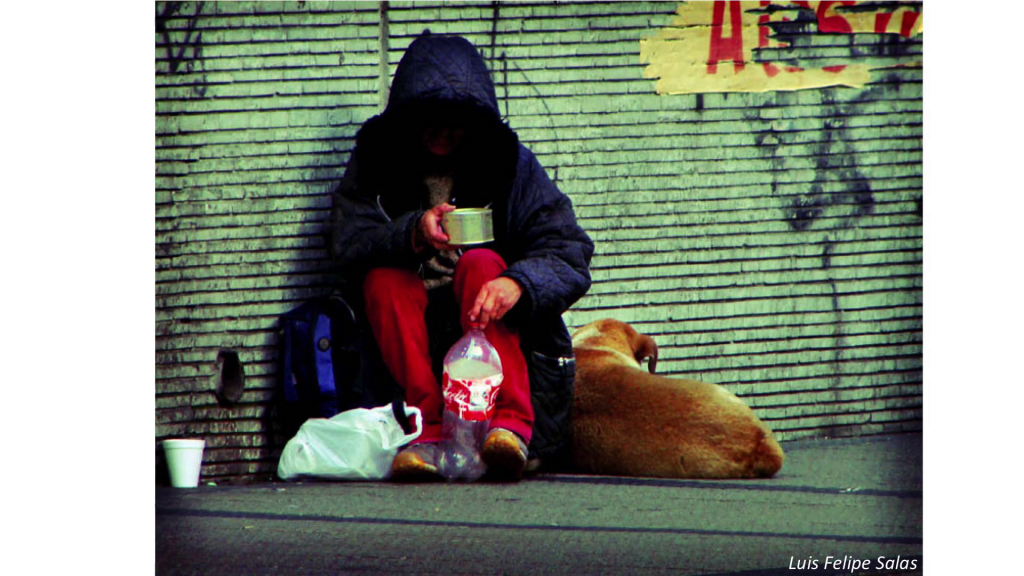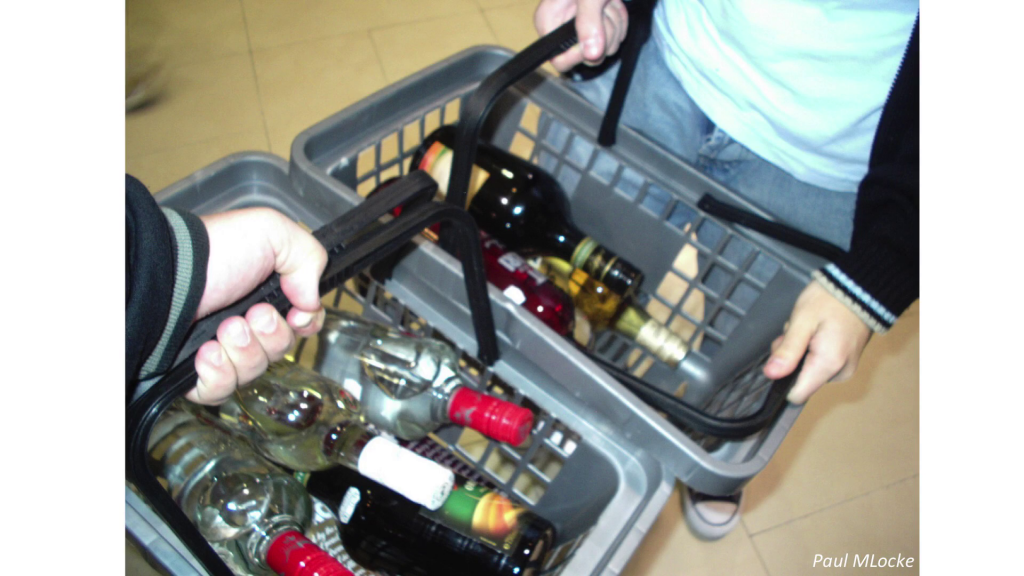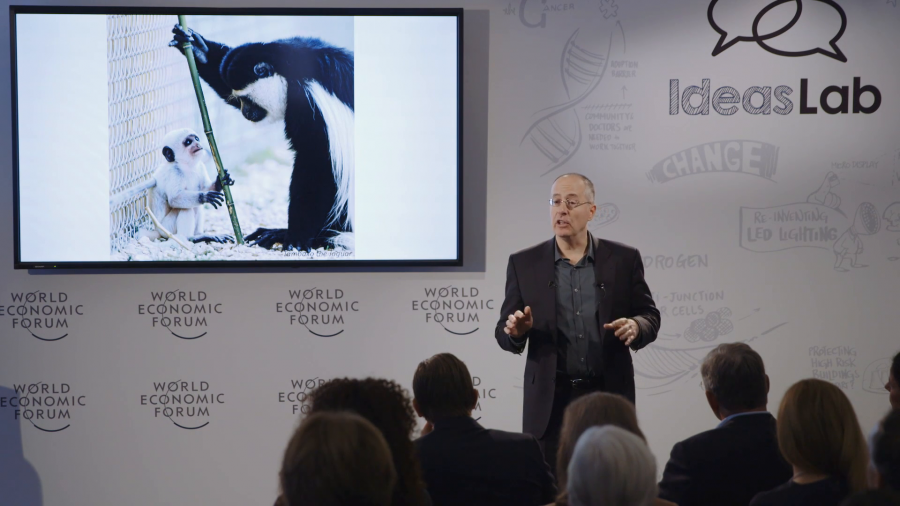This striking image of hurricane Katrina survivors risking drowning to load themselves down with beer and cigarettes illustrates a remarkable feature of human decision-making. We can become extraordinarily motivated to seek out and consume psychoactive substances. Nicotine, alcohol, heroin, cocaine, amphetamines, and the like.

Darwin might’ve been flummoxed by this. How did our species survive when our survival instincts can be cast aside in favor of drugs that kill us? Well, the answer’s two-fold. First, neuroscience research reveals that the drugs that addict us work on precisely the same brain systems as normally guide our survival decisions. Second, only in the modern era of industrial global capitalism was psychoactive substance exposure nearly universal.
A factory worker in the 1800s could roll maybe five hundred cigarettes a day. A modern cigarette rolling machine can produce twenty thousand per minute. And modern transportation systems can deliver those cigarettes to every city and town all over the world.
These two combined realities, our evolutionarily conserved vulnerability to addiction, and the development of the production and transportation systems that can deliver sentences worldwide, is why one in six deaths on the plane and among adults is attributable to psychoactive substance use. And this proportion is likely to rise in the future.
Primate research indicates that there may be a political and economic dimension to this. When lower primates form a hierarchy, those at the bottom undergo a change in their dopamine system. This makes them more likely to consume drugs in an addictive fashion. Now, if this turns out to be true of our species, that would mean that human beings are particularly vulnerable if they’re in some way dominated or don’t have any power.

Luis Felipe Salas, “Poverty”
Now, addiction could happen to anyone at any level society, but if you look in wealthy societies, people who have less economic and educational resources are more prone to addiction. So as inequality worsens, we really have a risk of creating a disempowered underclass of people who are literally sedated by ever more available psychoactive substances.
Our Stanford University team is going after this problem in two main ways. First, we’re using the tools of neuroscience to unravel the basic mechanisms of addiction in the brain. This includes imaging studies where we try to predict whether or not patients in treatment will relapse. If we had a reliable signal of who needed more care, we could then tailor treatment and help more people recover.
We also work directly with national and international public policymakers. For example, people who regulate the tobacco, alcohol, and pharmaceutical industry, and those who oversee the healthcare system and the criminal justice system. We communicate to our friends in the policy world what science has to teach about addiction and how you can use that information to make policies that do a better job protecting people and promoting public health.

PaulMLocke, “Underage buying of Alcohol”
One of our key messages is that psychoactive substances are not ordinary commodities. With many things that are for sale you can assume that whatever people consume reveals their rational preferences. So if you just deregulate it’ll all aggregate up to a public good. That’s probably true for broccoli. But it’s not true for psychoactive substances, because they impair our brain’s ability to value things.
That’s why any policies in this area have to take into account evolutionarily conserved circuits and functions in the brain. Prevention programs the tell teenage boys that if you smoke you might get lung cancer in thirty years don’t work. Prevention programs that tell them that girls don’t like to kiss smokers make them go pale with fear.
Think of another problem. People who drink and drive over and over again. What most governments do is they threaten them. They say you know, “Someday you’re going to have an accident and we’ll send you to prison for a long time.” Now faced between the choice between a swift and certain reward from drinking and a distant probabilistic cost, most people do what evolution teaches them to do. They eat their dessert first, and they go on drinking.
But imagine a different approach that is tailored to the realities of the human brain. This is what’s being done in the US state of South Dakota: People who are convicted of drunk driving multiple times are sentenced not to be allowed to drink. And this is backed up by multiple breath tests every single day. Those people who are on this program and then are caught drinking are given the kind of consequence to which our brain is attuned, something swift and certain. The consequence is modest. Twelve hours, twenty-four hours in a jail cell. But because it’s swift and it’s certain, it’s highly motivating for people to change their behavior.
After over eight million scheduled tests, the rate at which people show up and have a negative test (meaning they’ve not been drinking) is over 99%. This program has evidence of reducing drink driving arrests, domestic violence arrest, and population mortality. But it’s just one example of a general principle. We can use what we’re learning in science to make policies towards addiction that protect the public, that improve public health, and most importantly, too, they also help the person that has the addiction.
The magnificent decision-making organ that evolution has bequeathed us is vulnerable to addiction. Perhaps particularly if we live in the lower tiers of society. This creates a risk for humanity. Karl Marx was worried that religion would become the opiate of the masses. But if we don’t use neuroscience to make better treatments and better policies regarding addiction, the opiate of the masses will be opiates.
Further Reference
Keith Humphrey’s faculty profile at the Stanford Medicine site.

